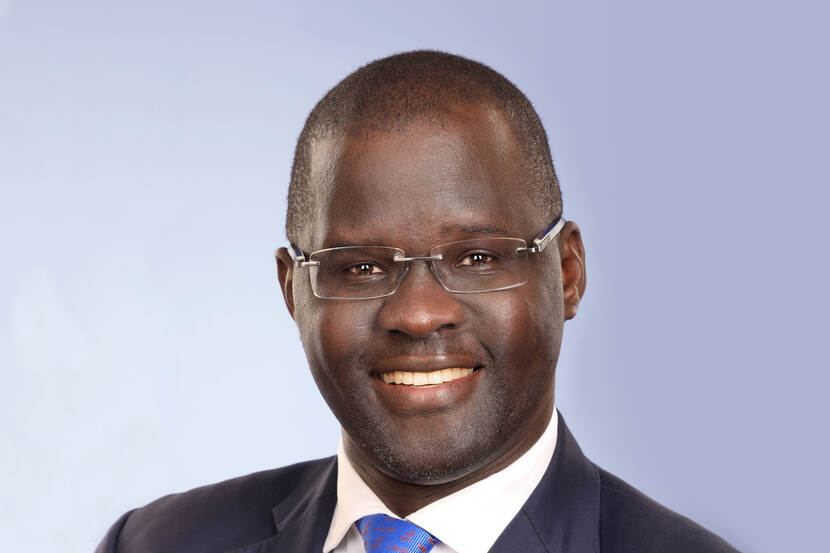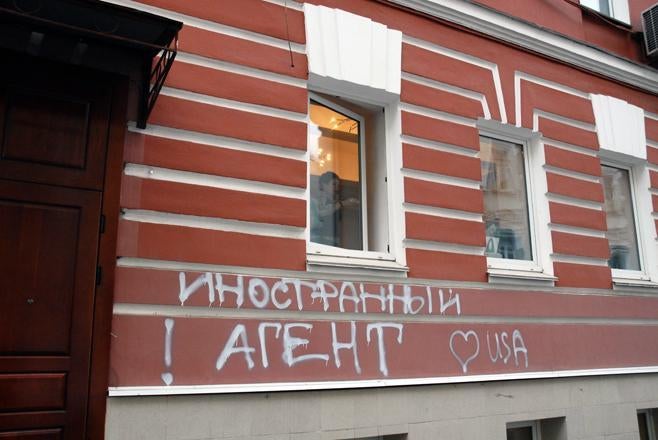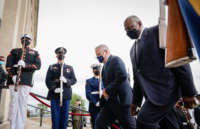The press is so powerful in its image-making role, it can make the criminal look like he’s the victim and make the victim look like he’s the criminal. This is the press, an irresponsible press. It will make the criminal look like he’s the victim and make the victim look like he’s the criminal. If you aren’t careful, the newspapers will have you hating the people who are being oppressed and loving the people who are doing the oppressing.
If you aren’t careful, because I’ve seen some of you caught in that bag, you run away hating yourself and loving the man — while you’re catching hell from the man. You let the man maneuver you into thinking that it’s wrong to fight him when he’s fighting you. He’s fighting you in the morning, fighting you in the noon, fighting you at night and fighting you all in between, and you still think it’s wrong to fight him back. Why? The press. The newspapers make you look wrong.
— Malcolm X, Speech at the Audubon Ballroom in Harlem (13 December 1964), later published in Malcolm X Speaks: Selected Speeches and Statements (1965), edited by George Breitman, p. 93.
Caitlin Johnstone asserts that “The most significant political moment in the US since 9/11 and its aftermath was when liberal institutions decided that Trump’s 2016 election wasn’t a failure of status quo politics but a failure of information control.” Since Trump’s election, information control contributes to why people critical of the democrats are called Trump sympathizers. Journalist Paul Street, if not the tip of the iceberg of this tendency, speaks for many. In these dark times, we must pull our forces together to overcome the challenges we face, and not obstruct political dialogue and struggle.
Street’s CounterPunch article,”Glenn Greenwald is Not Your Misunderstood Left Comrade“, obstructs political dialogue and struggle. He gave no substantive rebuttal to a Greenwald article, which declared “grotesque” the sight of masked servants and unmasked elite at the New York Met Gala. In a classic ad hominem attack, since Street couldn’t summon up an intelligent response, he just hurled insults. Sadly, this is what currently passes for political debate.
Where is our political compass? Street says: “Glenn Greenwald is not a man of ‘the Left’ (or whatever’s left of ‘the Left’).” What does “Left” mean, post-Trump? Street asserts that “Greenwald broke on through to the wrong side during the Trump years, so clouded by his understandable contempt for liberal and Democratic hypocrisy, corporatism, and imperialism as to become a willing accomplice of the white nationalist right.” Greenwald’s tireless and meticulous debunking of Russiagate cast him as a Trump sympathizer to people like Street. Remarkably, many on “the Left,” still believe Russia did it, though the recent indictment of Hilary Clinton’s lawyer and arrest of the principal source of the bogus Steele dossier, should put any such notion to rest.
Street quickly discounts Greenwald’s reason for leaving The Intercept, saying “he was too good to be edited – …a piece that tried to advance Trump campaign propaganda against Joe Biden on the eve of the 2020 presidential election.” Street is critical that Greenwald is “all over the Hunter Biden-New York Post-deep state laptop story,” but after New Proof Emerges of the Biden Family Emails: a Definitive Account of the CIA/Media/BigTech Fraud, even CNN recognized the bombshell.
The World Socialist Website, in sync with Street’s “analysis,” calls Greenwald a “sly fascism-denier” who Street says “has creepily thrown in with the white nationalist right.” Why? In his always impeccably documented piece, FBI Using the Same Fear Tactic From the First War on Terror: Orchestrating its Own Terrorism Plots, Greenwald discussed the plot to kidnap Michigan Governor Whitmer. He concludes that “there was no way to avoid suspicions about the FBI’s crucial role in a plot like this absent extreme ignorance about the bureau’s behavior over the last two decades or an intentional desire to sow fear about right-wing extremists attacking Democratic Party officials one month before the 2020 presidential election.”
Greenwald was one of the few who smelled a rat in the Michigan kidnapping story. After serious investigative journalism, he found the rat. “In sum, the FBI devised this plot, was the primary organizer of it, funded it, purposely directed their targets to pose for incriminating pictures that they then released to the press, and then heaped praise on themselves for stopping what they themselves had created. The Wall Street Journal’s headline declares, In Michigan Plot to Kidnap Governor, Informants Were Key, yet January 6 is declared an attempted coup.”
In spite of such headlines from the WSJ, Street says Greenwald “downplays the seriousness of the fascist-putschist Capitol Riot of January 6, 2021.” This doesn’t sound like downplaying to me: “Of course the FBI was infiltrating the groups they claim were behind these attacks…Yet the suggestion that FBI informants may have played some role in the planning of the January 6 riot was instantly depicted as something akin to, say, 9/11 truth theories or questions about the CIA’s role in JFK’s assassination.”
Street claims Greenwald has a “curious alignment with the white-nationalist neofascist Donald Trump and the January 6th marauders in their purported struggle with ‘the deep state.’” Marauders or the FBI? Does he not believe in a Deep State?
Greenwald’s article “Questions About the FBI’s Role in 1/6 Are Mocked Because the FBI Shapes Liberal Corporate Media” is subtitled “The FBI has been manufacturing and directing terror plots and criminal rings for decades. But now, reverence for security state agencies reigns.” In a widely praised TED Talk, Trevor Aaronson states, “There’s an organization responsible for more terrorism plots in the United States than al-Qaeda, al-Shabaab and ISIS combined: The FBI.” Then why are Street, World Socialist Website, Counterpunch and many others well-versed in COINTELPRO tactics, now swallowing FBI words whole and calling people Trump fascists for raising the issue of FBI involvement in January 6?
Street says Greenwald “defends Trump and other Amerikaner neofascists against the ‘censorship’ of their supposed free speech right to spew sexist, nativist, and white power hatred on Twitter and Facebook.” An article I wrote about the new reality police revealed that Media Alliance, a San Francisco organization founded in 1976 to be mainstream media watchdogs, circulated a petition after January 6 which says: “Facebook should create a circuit breaker to help prevent dangerous disinformation and incitements to violence from ever reaching a mass audience…”
That good minds sincerely believe Silicon Valley executives should be the Gods of truth in today’s world makes Orwell look cheerily optimistic. Yet shockingly, many people agree with the unprecedented censorship of a former president. Nixon, even after his impeachment and resignation, was never gagged as Trump is. As a former constitutional lawyer, Greenwald addressed concerns of Silicon Valley censorship in “Congress Escalates Pressure on Tech Giants to Censor More, Threatening the First Amendment.” He believes House Democrats are getting closer to the constitutional line, if they have not already crossed it.
Greenwald recently wrote several pieces on COVID, one announcing that he was eagerly vaccinated. However, his questions about the cost-benefit analysis that is missing from the covid debate and his support of the position taken by NBA star Jonathan Isaac have Street condemn him for “failing to mention the horrific, anti-science, covid-fueling and pandemo-fascist anti-masking and anti-vax practices, policies, and politics of the Amerikaner Party of Trump (the Republicans)….” Very articulate and factual.
As opposed to a report from the National Vaccine Information Center, Forced Vaccination Was Always the End Game, which cites that breakthrough COVID infections, hospitalizations and deaths in fully vaccinated people are on the rise, individuals who have recovered from the infection have stronger natural immunity than those who have been vaccinated, and officials at the World Health Organization now say that the SARS-COV-2 virus is mutating like influenza and is likely to become prevalent in every county – no matter how high the vaccination rate.
Unfortunately, in spite of such growing data, Greenwald’s piece supporting NBA’s Isaac is subtitled: It is virtually a religious belief in the dominant liberal culture that people who do not want the COVID vaccine are stupid, ignorant, immoral and dangerous.
Greenwald’s “The ACLU, Prior to COVID, Denounced Mandates and Coercive Measures to Fight Pandemics” excerpts from a 2008 report of “the actual ACLU prior to its Trump-era transformation” which had one primary purpose: to denounce as dangerous and unnecessary attempts by the state to mandate, coerce, and control in the name of protecting the public from pandemics.
The report cites lessons from history: American history contains vivid reminders that grafting the values of law enforcement and national security onto public health is both ineffective and dangerous. Too often, fears aroused by disease and epidemics have justified abuses of state power. Highly discriminatory and forcible vaccination and quarantine measures adopted in response to outbreaks of the plague and smallpox over the past century have consistently accelerated rather than slowed the spread of disease, while fomenting public distrust and, in some cases, riots.
Greenwald legitimately questioned the ACLU’s about-face from the report to its current position: “Far from compromising them, vaccine mandates actually further civil liberties,” its Twitter account announced. Street supports the ACLU’s current position.
Many people ask Why Does Glenn Greenwald Keep Appearing on Tucker Carlson’s Show? The question I keep asking, but get no answer, is why Greenwald, Tulsi Gabbard, Aaron Maté, Matt Taibbi, Max Blumenthal and Jimmy Dore can only appear on Fox? Why are they not on “liberal” MSNBC or CNN, let alone Democracy Now? The dominant, ubiquitous paradigm that cannot be challenged is – don’t go after the democrats.
Greenwald, as Julian Assange, is condemned by liberals only post-Trump. The liberal visceral hatred of Trump has trumped rational discourse. If there was true rational discourse, Assange would not be suffering in Belmarsh Prison as a consequence of his cardinal sin – publishing emails harmful to democrats.
Following the Kyle Rittenhouse verdict, Greenwald again went out on a limb, which a revolutionary comrade called a “rant,” but his message is only what Caitlin Johnstone asserted: “If your opinion about a legal case would be different if the political ideologies of those involved were reversed and all other facts and evidence remained the same, then it’s probably best not to pretend your position on the case has anything to do with facts or evidence.” But Greenwald is again in the crosshairs of “progressives.”
I agree with Street that he and Greenwald are not “on the same side.” If Street, and countless others like him, engaged in true political debate and struggle rather than calling people “facetious,” “stupid” and “snotty,” we might be closer to the revolution Street says he hungers for.
The post What’s Left: In Defense of Glenn Greenwald first appeared on Dissident Voice.This post was originally published on Dissident Voice.











 USA” on the buildings hosting the offices of three prominent NGOs in Moscow, including Memorial. © 2012 Yulia Klimova/Memorial
USA” on the buildings hosting the offices of three prominent NGOs in Moscow, including Memorial. © 2012 Yulia Klimova/Memorial







